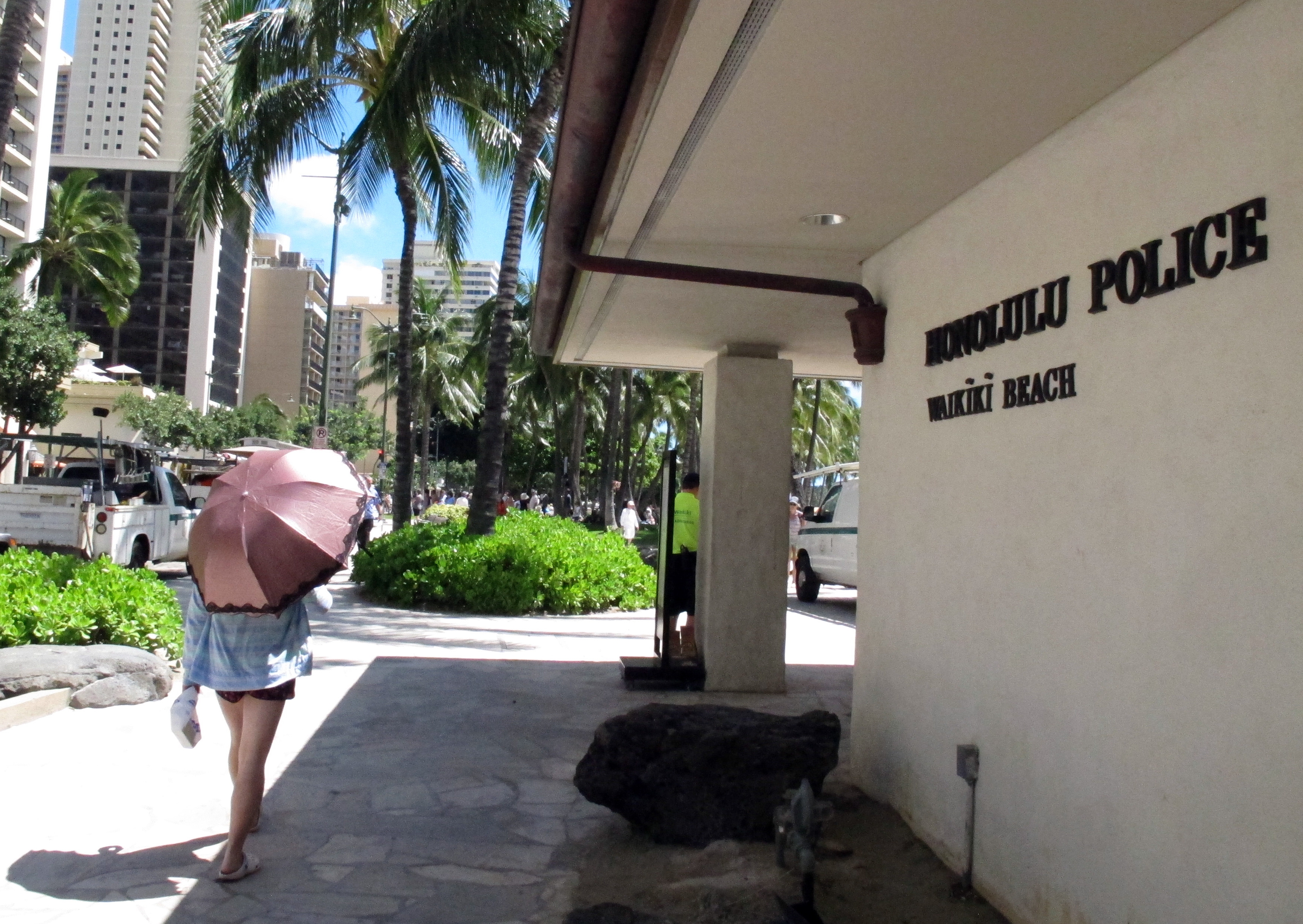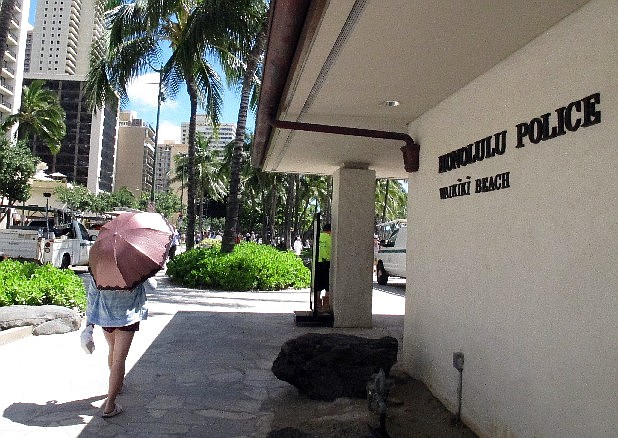 A pedestrian walks in front of a Honolulu Police Department station in Honolulu's tourist area of Waikiki. As Hawaii lawmakers considered a measure that would crack down on prostitution, the Honolulu Police Department requested a change that has shocked human trafficking experts and victims rights advocates: Police wanted it to remain legal for undercover officers to have sex with prostitutes.
A pedestrian walks in front of a Honolulu Police Department station in Honolulu's tourist area of Waikiki. As Hawaii lawmakers considered a measure that would crack down on prostitution, the Honolulu Police Department requested a change that has shocked human trafficking experts and victims rights advocates: Police wanted it to remain legal for undercover officers to have sex with prostitutes.HONOLULU - Hawaii lawmakers on Friday vowed to restore a line in a bill that would make it illegal for police to have sex with prostitutes.
Currently in Hawaii, police working within the scope of duty are exempt from all prostitution laws. A line in House Bill 1926 would have removed that exemption if officers have sex with prostitutes, but it was removed when Honolulu police told lawmakers that exemption was an important part of fighting crime.
Advocates and law enforcement experts found that argument implausible. After many of them testified to the Senate Judiciary Committee - and with no police in attendance - lawmakers were inclined to agree.
The committee deferred decision on the large crime bill by one week. Committee Chairman Clayton Hee, a Democrat representing Kaneohe and Kaaawa, said its next version would once again outlaw police from having sex with prostitutes.
"I will tell you that without question I can't imagine police officers being exempt from the law," he said. "To condone police officers' sexual penetration in making arrests is simply nonsensical to me. And I would note that HPD's absence is deafening.
"You can expect that exemption will be out of the recommendations of the chair."
Added Democratic Sen. Malama Solomon, who represents Hilo: "I find that appalling. I just can't understand how that can happen."
The promise from lawmakers to toss the exemption came as a relief to people who testified at the hearing.
Kathryn Xian, the founder of the Pacific Alliance to Stop Slavery, testified to the committee that the practice of "cop-checking" that police claimed makes the exemption necessary does not jive with the accounts of former prostitutes.
"I'm really glad Hee's making that policy call," said Xian, a Democrat running for Congress in Hawaii's first district. "It's long overdue. I think it will benefit a lot of victims out there."
Myles Breiner, a former Honolulu prosecutor who now works as a defense attorney, testified that his clients who are prostitutes often complain to him that police have sex with them before making an arrest.
"My concern is public respect for the law," Breiner told lawmakers. "How do we expect people to follow the law when the police engage in criminal conduct?"
Honolulu police say their officers who investigate prostitution -- called morals officers, in the department -- have not been the subject of such complaints in recent memory.
Police testified in writing and in person to the House Judiciary Committee in February that keeping the exemption in statute protects undercover officers from being found out. They said internal department protocols protect citizens against abuses.
The House committee amended the bill to restore the exemption. The House later passed that version of the bill.
On Thursday, The Associated Press wrote about the successful lobbying of police to keep that exemption. The Honolulu Police Department then issued a statement disputing that story's findings. The release reads, in part, "The HPD has never asked the Legislature to allow officers to engage in sex with prostitutes."
Yet written testimony to the House Judiciary Committee dated Feb. 13 and signed by Chief of Police Louis Kealoha and Capt. Jason Kawabata of the Narcotics/Vice Division explicitly asks lawmakers to keep the legal protection for police to have sex with prostitutes.
"Even if the intent of the amendment (sic) is merely to limit actual conduct by the officer, we must oppose it," that letter reads. "Codifying the limitations on an officer's conduct would greatly assist pimps and prostitutes in their efforts to avoid prostitution."
Such exemptions for police to have sex with prostitutes appear rare in states' laws. Michigan appears to have one. Law enforcement experts say there's never any need to have sex with a prostitute to make an arrest, because the agreement to exchange money for sex is sufficient evidence of a crime.
